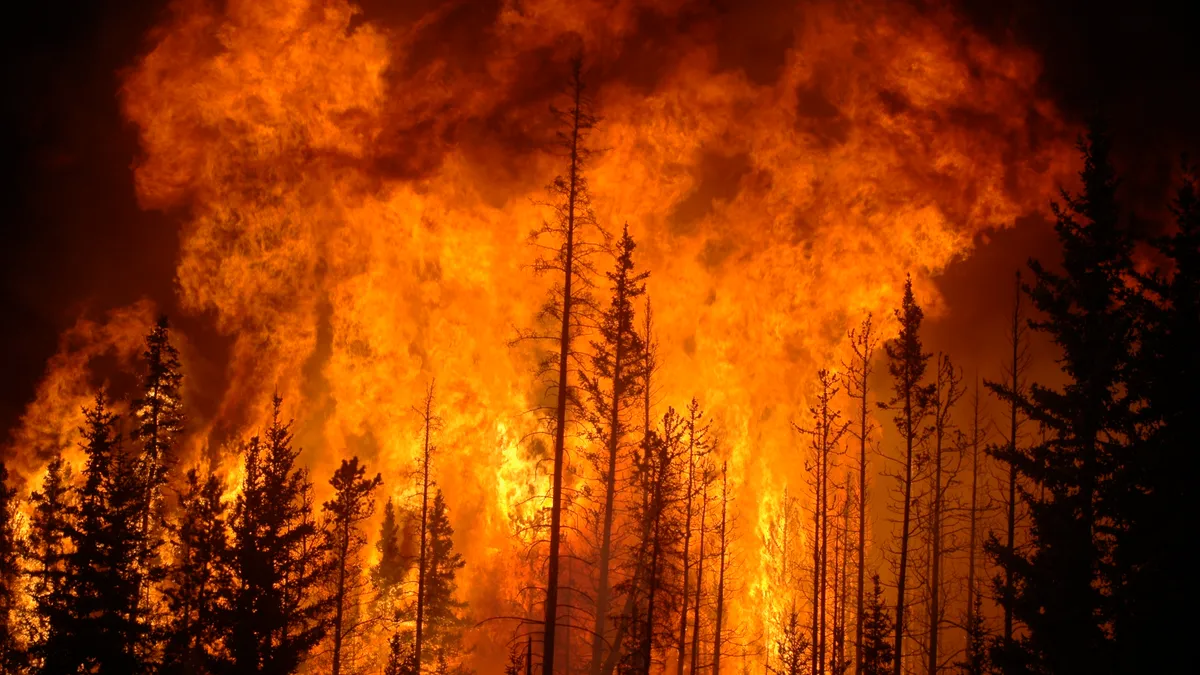Dive Brief:
- Massive wildfires sweeping through California's Sonoma and Napa Counties, have left 100,000 customers without power in Pacific Gas and Electric's service territory. The fires have killed more than 20 people, left 670 people missing and burned more than 3,500 structures, according to the latest media updates.
- The damages sustained by the wildfires could reach into the tens of billions, and PG&E reported that it has mobilized crews and set up base camps to respond to the power outages. The utility will begin assessing damages once they receive the all-clear from officials.
- Mercury News noted emergency dispatchers were sent to at least 10 different locations in Sonoma County over a 90-minute period to respond to reports of sparking wires and problems with power equipment amid hurricane-strength winds. PG&E acknowledged power equipment issues to the news outlet, but pointed to a confluence of factors at play, including strong winds, millions of trees weakened by drought and massive amounts of dried vegetation after historic winter rains and a hot summer.
Dive Insight:
It's too early to pinpoint the exact cause of the deadly wildfires sweeping through California's Wine Country right now, but the Mercury News is quick to point out PG&E's history of poor power equipment maintenance at fault for past wildfires.
In April, state utility regulators fined PG&E $8.3 million for failing to properly maintain a power line deemed responsible for sparking the 2015 Butte Fire.
The wildfires follow the state's hottest summer on record, and the damage surpasses the 1991 Oakland Hills firestorm, according to Grist's Eric Holthaus. Historic winter rains, which also spurred a surge of hydropower, largely ended the record-breaking five-year drought in the state, but it came with consequences: massive vegetation growth that dried during the hot summer.
This helps fuel the huge fire complex, which has already burnt through 170,000 acres, nearly on par with Montana's Lodgepole Complex fire that scorched more than 270,000 acres this year. Deemed a catastrophic event by Gov. Jerry Brown (D), the wildfires illustrate the increasing severity of weather events stemming from climate change.
"With a warming climate and dry weather and reducing moisture, these kinds of catastrophes ... will continue to happen and we have to do everything we can to mitigate," Brown said, according to UPI.
The wildfires come weeks after a trio of Hurricanes devastated Texas, Florida and Puerto Rico. The power sector is grappling with rebuilding damaged infrastructure, sparking conversations about the role of microgrids and distributed generation to boost resilience and reliability.














